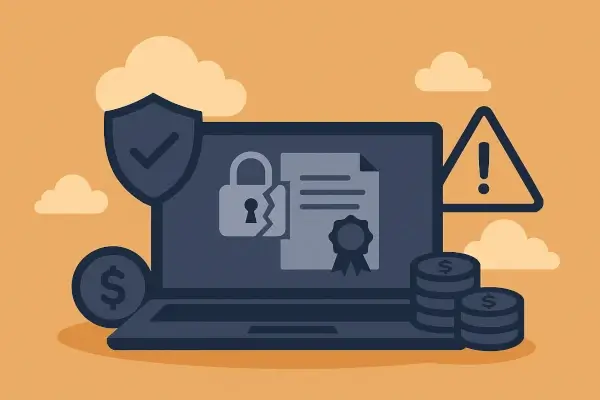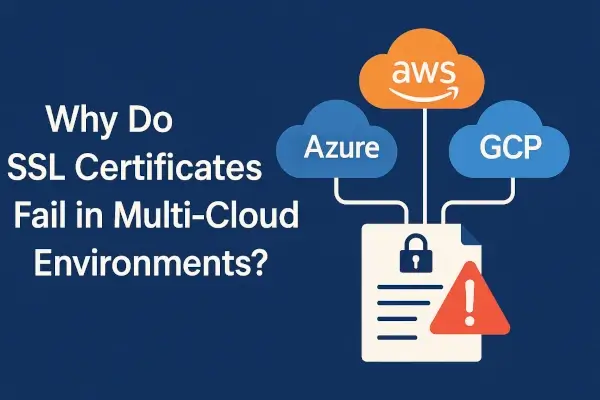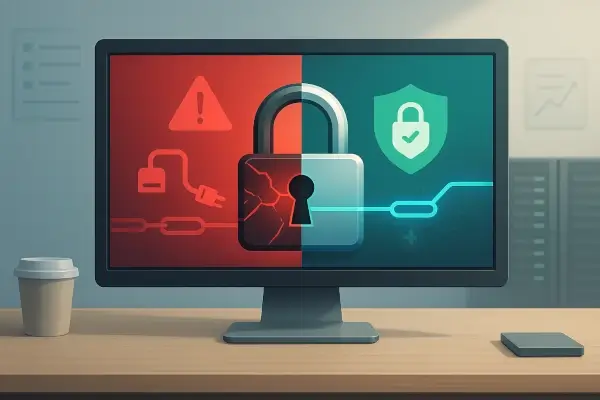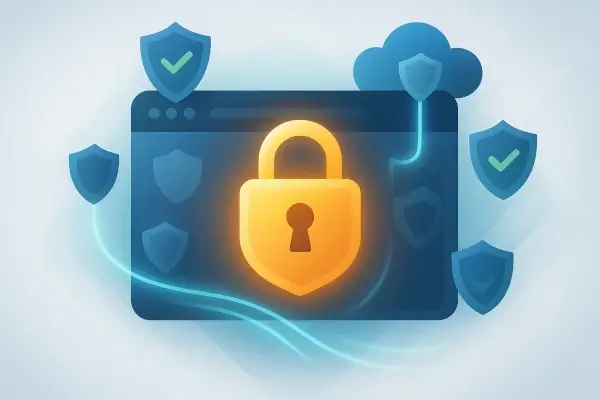The Cost of Ignoring Expired SSL Certificates for Businesses
Posted on September 11th, 2025 by Simon Rodgers in Monitoring, Guides
SSL certificates secure the digital backbone of businesses. They encrypt data, protect customer trust, and ensure compliance with strict regulations. Yet many companies still face the cost of ignoring expired SSL certificates every year. When a certificate expires, the consequences hit hard: websites go offline, users see security warnings, and revenues drop. Let's break down the risks, costs, and ways to prevent expired SSL certificates from damaging your business.
Why Do SSL Certificates Fail in Multi-Cloud Environments (AWS, Azure, GCP)?
Posted on August 29th, 2025 by Simon Rodgers in Explainer
SSL certificates keep websites and apps secure, but in AWS, Azure, and Google Cloud Platform (GCP), misconfigurations or expirations can still cause services to go offline. Why do these failures happen, and how can you prevent them?
Why SSL Certificate Verification Failed: All Causes, Fixes & Prevention
Posted on August 15th, 2025 by Simon Rodgers in Guides, Security
SSL Certificate Verification Failed errors are one of the most common and frustrating issues for developers, DevOps engineers, and system administrators. Whether you're building a Python application, running a Docker container, or managing a web server, this guide will help you:
Why Do You Need an SSL Certificate? Essential Reasons for Your Website
Posted on July 30th, 2025 by Damien Jordan in Monitoring, Explainer
Why do you need an SSL certificate? To protect your website and users. SSL certificates encrypt data, build trust, improve SEO, and ensure compliance with industry standards. This article will explore each of these reasons in detail.
How to Know if Emails Are Actually Reaching Customers in Time
Posted on July 18th, 2025 by Richa Gupta in Guides
TL;DR: Timely email delivery is critical. Delays in transactional or marketing emails can result in missed opportunities and reduced customer trust. Utilize monitoring methods such as timestamp analysis and round-trip tracking to ensure emails reach inboxes within seconds.

 Copyright 2000-2025, WebSitePulse. All rights reserved.
Copyright 2000-2025, WebSitePulse. All rights reserved.